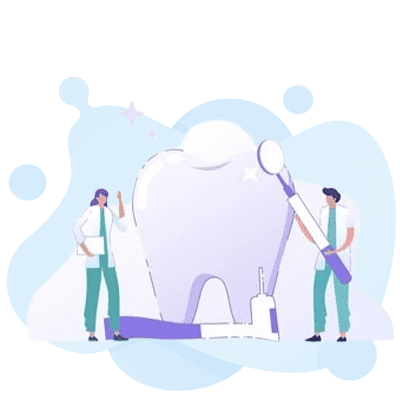INBDE (Integrated National Board Dental Exam) Prep Guide

The INBDE is a big test for dental students to get their license in the U.S. It checks their ability to solve problems and work with patients. The test is managed by the Joint Commission on National Dental Examinations (JCNDE) and takes place at various test centers across the country.
Free INBDE Practice Test Online
Key Takeaways
- The INBDE is a two-day examination that replaces the NBDE Part I and NBDE Part II.
- The INBDE is accepted in all U.S. states and territories as fulfilling all or part of the written examination requirements for licensure.
- Examination administrations will no longer be offered in the province of Quebec in Canada, effective August 23, 2025.
- Fees for rescheduling or cancelling a testing appointment vary depending on the timeframe, with the full testing fee forfeited for no-shows or late arrivals.
- Candidates can request an audit of their INBDE results within 30 days, with a $65 fee and results available within four to six weeks.
Understanding the INBDE
The INBDE helps dental boards evaluate if candidates are qualified to practice dentistry. It’s a big test that checks what you know and if you can use that knowledge to solve problems safely and well.
Purpose and Acceptance
The INBDE tests if you’re ready for basic dentist work. It covers key knowledge and skills needed for dentistry. If you pass, you can practice dentistry in all U.S. states and territories without taking another written test.
Examination Content and Specifications
There are 500 questions in the INBDE. You have two days to answer them, with each day lasting over 6 hours. The test is based on key areas like diagnosing, planning treatments, managing oral health, and understanding dentistry as a profession.
| INBDE Content Area | Percentage of Exam |
|---|---|
| Diagnosis and Treatment Planning | 36.2% |
| Oral Health Management | 42.0% |
| Practice and Profession | 21.8% |
To pass the INBDE, you must know about 56 different important areas in dentistry. This big test makes sure dentists know how to care for patients well and safely.

INBDE (Integrated National Board Dental Exam) Preparation Resources
Official Preparation Materials
The INBDE Candidate Guide is a crucial resource. It explains the exam’s format, content, and how it’s scored. Plus, there are sample test questions and other study materials to download. Candidates should take time to get to know these materials well. This will help them understand the exam’s structure and what’s expected.
Test-Taking Strategies
Knowing the exam’s content and format is key. But it’s also important to have smart test-taking strategies. Some tips include:
- Practicing time management is crucial. Make sure to do practice tests under timed conditions. This helps you get used to the exam’s pace.
- Have a system for each question. Read and analyze the question to find what it’s really asking for before choosing an answer.
- Active reading methods can be very helpful. Underline important details and take notes. This can help you remember and use the information better.
- It’s vital to know how to manage stress. Techniques like deep breathing and visualization can help you stay calm and focused during the exam.

Using both the official study materials and effective test-taking strategies is a winning combination. This approach can significantly improve your performance on the INBDE.
Conclusion
The INBDE is a big part of becoming a dentist in the U.S. It’s important to get ready and know what to expect. This way, those taking the exam can show they are ready to practice dentistry at a beginner’s level safely.
This guide gives a lot of helpful information for the INBDE. It talks about why the test is given and how to get ready. Aspiring dentists now have everything they need to prepare and do well.
The INBDE is always changing for the better. The JCNDE and Prometric are working together to keep the exam up to date and reliable. It’s crucial for dental candidates to keep learning and preparing. This guide can help them do that, making it easier to reach their career goals.